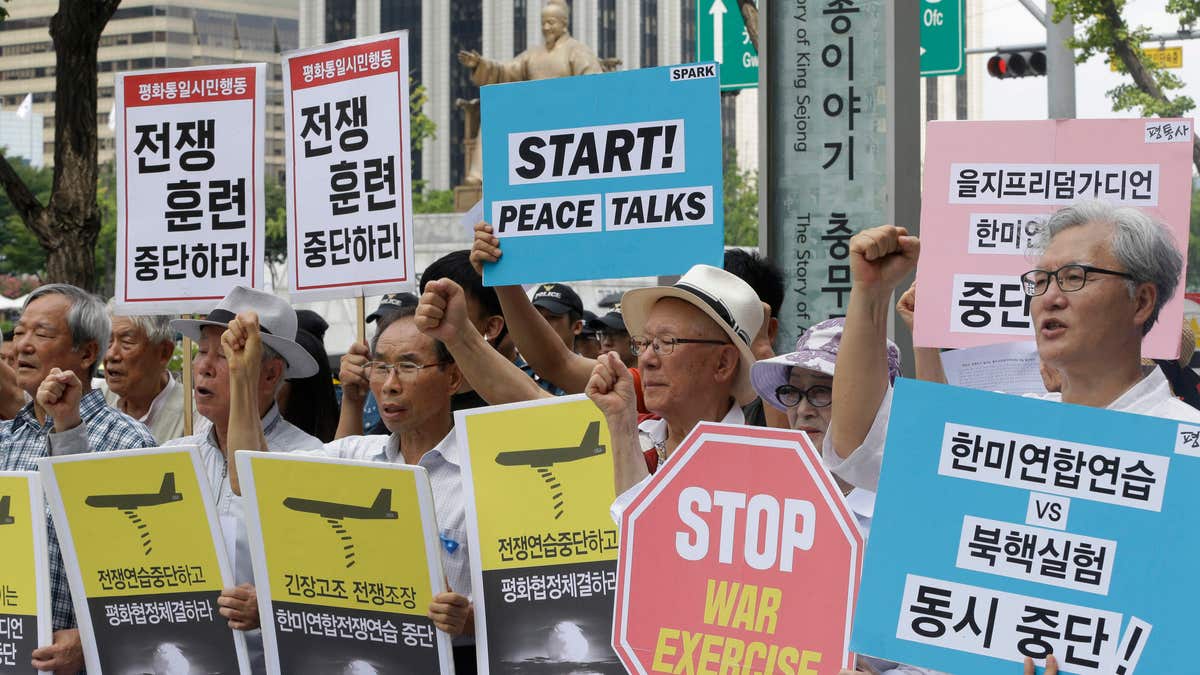
Aug. 22, 2016: South Korean protesters shout slogans during a rally demanding to stop the joint military exercises, Ulchi Freedom Guardian, or UFG, between the U.S. and South Korea near U.S. Embassy in Seoul, South Korea. (AP)
North Korea threatened Monday to turn Seoul and Washington into “a heap of ashes through a Korean-style pre-emptive nuclear strike” if they showed any signs of aggression toward the North’s territory during their annual military drills.
South Korea and the U.S. began the drills despite the threats. Pyongyang’s fiery rhetoric isn’t unusual, but the latest warning comes at a time of more tension following the defection of a senior North Korean diplomat and a U.S. plan to place a defense missile system in South Korea.
The North's "first-strike" units are read to mount retaliatory attacks on South Korean and U.S. forces involved in the drills, according to the statement, carried by Pyongyang's state media.
South Korea expressed “strong” regret over Pyongyang’s warning, saying the drills with the U.S. are purely defensive in nature. Seoul and Washington have repeatedly said they have no intentions of invading Pyongyang.
This year’s Ulchi Freedom Guardian drills that began Monday for a 12-day run are largely computer-simulated war games. The training involves 25,000 American troops and 50,000 South Korea soldiers, according to the U.S. and South Korean militaries.
The drills come just days after Seoul announced that Thae Yong Ho, No. 2 at the North's embassy in London, had recently defected to South Korea because he was disillusioned with the North's leadership. Pyongyang's state media called him "human scum" and a criminal who had been ordered home for a series of alleged criminal acts, including sexually assaulting a minor.
South Korea's president said Monday there were signs of "serious cracks" in the North's ruling elite class, and that Pyongyang could carry out some action to divert public attention away from such domestic problems.
Many analysts said Thae's defection was an embarrassment to the North Korean government of leader Kim Jong Un, but would not weaken the unity of the country's elite class.
A South Korean official told Sky News that “it is highly likely that North Korea will make various attempts” to thwart any other defections, including possible assassinations.
Previous South Korea-U.S. military drills have brought threats of war.
North Korea has already boosted such war rhetoric because of the planned deployment of the U.S. Terminal High-Altitude Area Defense system in South Korea, which Washington and Seoul says is needed because of the increasing North Korean threats.
The Associated Press contributed to this report.







































